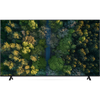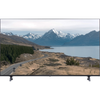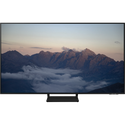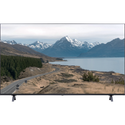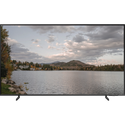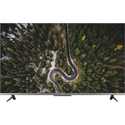A comparison of specs, key information, reviews, and best pricing from top retailers
Last updated -- hours ago | Report incorrect information
What we think

The PerfectRec TV team Learn more
Updated January 10, 2024·
If you're looking for slightly better picture quality overall, the LG UP8000 is a better choice as it performs a little better in bright rooms. However, the LG NANO75 is slightly more expensive and offers better sports content viewing and color out of the box. Neither TV is ideal for dark room viewing. For gaming, both models are comparable. Both TVs have the same number of HDMI ports and neither has great built-in speakers. The UP8000 is also more suitable for using as a computer monitor. If cost is a concern, the UP8000 tends to be less expensive than the NANO75. Give Feedback
this description is based on the product variant with some specs and product variant with some specs. At the time of writing, the variant with some specs cost some dollars and the variant with some specs cost some dollars.
Advantages of the LG NANO75 (LCD)
- Good motion processing
Advantages of the LG UP8000 (LCD)
- Good viewing angle
Key differences
Cost
$900
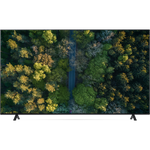
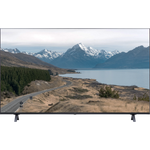
$830
$400
$600
$800
$1,000
$1,200
$1,400
The LG NANO75 (LCD) has a price of $900 and the LG UP8000 (LCD) costs $830.
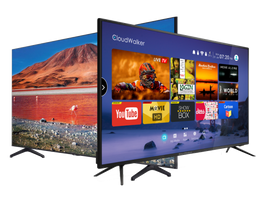
Let Us Help Find Your Perfect TV
Find your new TV
Key similarities
Picture Quality
5.6


5.7
4.97/10
CONTRAST
5.10/10
5.8/10
COLOR VOLUME SCORE
5.8/10
LED
PANEL TYPE
LED
IPS
PANEL SUB-TYPE
IPS
The LG UP8000 (LCD) and LG NANO75 (LCD) both have poor picture quality.
Movies & TV
5.2


5.3
4.97/10
CONTRAST
5.10/10
5.0/10
BLACK UNIFORMITY
5.5/10
7.5/10
UPSCALING
7.5/10
Yes
HDR10 SUPPORT
Yes
No
HDR10+ SUPPORT
No
No
DOLBY VISION SUPPORT
No
The LG UP8000 (LCD) and LG NANO75 (LCD) are both poor for movies & TV.
Sports
6.7


6.6
7.5/10
MOTION PROCESSING
6.0/10
60Hz
REFRESH RATE
60Hz
10.0/10
INPUT LAG SCORE
10.0/10
7.5/10
UPSCALING
7.5/10
5.8/10
SDR BRIGHTNESS SCORE
6.5/10
Yes
HLG SUPPORT
Yes
The LG NANO75 (LCD) and LG UP8000 (LCD) are both only fair for sports.
For watching sports on the LG NANO75, the average response time and motion processing capabilities result in a fair experience with some blur in fast-moving scenes, and its performance in managing reflections is competent, making it suitable for rooms with some light. The LG UP8000, while having slightly better viewing angles, features motion processing that is less sophisticated, but also has fair response time, meaning it will also show some blur during fast action; its reflections handling is similarly competent, but overall gray uniformity is marginally better, which is less crucial for sports.
Gaming
5.7


5.7
6.1/10
RESPONSE TIME SCORE
6.7/10
10.0/10
INPUT LAG SCORE
10.0/10
7.5/10
MOTION PROCESSING
6.0/10
0.0/100
GAMING LOCAL DIMMING
0.0/100
5.7/10
GAME HDR BRIGHTNESS SCORE
6.0/10
The LG UP8000 (LCD) and LG NANO75 (LCD) are both poor for gaming.
The LG NANO75 and LG UP8000 have lower response time and input lag scores which are essential for a smooth gaming experience as they determine how quickly the display can react to input and render images. With suboptimal response times and input lags, both TVs may exhibit delays and motion blur during fast-paced gaming, which could hinder performance for serious gamers.
Cartoons & Animation
5.9


5.9
6.5/10
COLOR GAMUT SCORE
5.9/10
5.8/10
COLOR VOLUME SCORE
5.8/10
5.8/10
SDR BRIGHTNESS SCORE
6.5/10
7.7/10
COLORS OUT OF THE BOX SCORE
7.1/10
6.0/10
GRAY UNIFORMITY
6.2/10
The LG NANO75 (LCD) and LG UP8000 (LCD) are both poor for cartoons & animation.
The LG NANO75 and LG UP8000 both have less accurate colors out of the box and limited color gamut, which means cartoons and animated content may not look as vivid or true-to-life as they could on TVs with a wider, more accurate range of colors. While both TVs are similarly challenged in color volume and gray uniformity, these factors are less impactful than color accuracy and gamut, though they could still affect the overall look of animation, with the NANO75 having a slight edge in gray uniformity.
News, Talk, & Other TV
6.1


6.2
5.8/10
SDR BRIGHTNESS SCORE
6.5/10
7.5/10
UPSCALING
7.5/10
The LG UP8000 (LCD) and LG NANO75 (LCD) are both only fair for news, talk, & other TV.
The LG NANO75 has respectable upscaling capabilities and fair colors out of the box, making it suitable for watching standard definition (SD) content like news and talk shows, but its SDR brightness is only rated as poor, limiting its performance in well-lit environments. Similarly, the LG UP8000 excels in upscaling SD content with similar capabilities for colors out of the box, and while it too has fair SDR brightness, it outperforms the NANO75 marginally in contrast, enhancing the viewability of various content types.
Bright Room
5.8


5.9
6.8/10
VIEWING ANGLE
7.5/10
5.8/10
SDR BRIGHTNESS SCORE
6.5/10
5.5/10
HDR BRIGHTNESS SCORE
5.8/10
7.8/10
REFLECTIONS SCORE
7.0/10
The LG UP8000 (LCD) and LG NANO75 (LCD) are both poor for bright room.
The LG NANO75 and LG UP8000 both have poor SDR and HDR brightness, which makes them perform poorly in bright rooms, as they cannot get bright enough to overcome glare. Additionally, while they handle reflections well, their poor color volume and only fair color gamut further limit the picture quality in well-lit environments.
Give feedback
We’re constantly working to improve.
How the LG NANO75 (LCD) and the LG UP8000 (LCD) compare to other TVs
Spec Comparison
| LG NANO75 (LCD) | LG UP8000 (LCD) |
GENERAL | |||
|---|---|---|---|
| Price | |||
$900 | $830 | ||
Brand | |||
Brand | LG | LG | |
Release Date | |||
Release Date | March 4, 2022 | July 5, 2021 | |
Full name | |||
Full name | 65NANO75 | 65UP8000 | |
Screen Size | |||
Screen Size | 65" | 65" | |
Screen Resolution | |||
Screen Resolution | 4K | 4K | |
TV FEATURES | |||
|---|---|---|---|
Operating System | |||
Operating System | webOS | webOS | |
Sound Quality Score | |||
Sound Quality Score | 6.1/10 | 6.7/10 | |
NextGen Ready | |||
NextGen Ready | No | No | |
HDMI Ports | |||
HDMI Ports | 3 | 3 | |
Coax Ports | |||
Coax Ports | 1 | 1 | |
DISPLAY QUALITY SCORES | |||
|---|---|---|---|
Picture Quality Score | |||
Picture Quality Score | 5.7/10 | 5.8/10 | |
Bright Room Score | |||
Bright Room Score | 5.8/10 | 6/10 | |
Gaming Score | |||
Gaming Score | 5.7/10 | 5.8/10 | |
Movies & TV Score | |||
Movies & TV Score | 5.3/10 | 5.4/10 | |
Sports Score | |||
Sports Score | 6.7/10 | 6.6/10 | |
PHYSICAL | |||
|---|---|---|---|
Dimensions w/o Stand (H x W x D) | |||
Dimensions w/o Stand (H x W x D) | 33" x 57.2" x 2.3" | 33" x 57.2" x 2.3" | |
Dimensions with Stand (H x W) | |||
Dimensions with Stand (H x W) | 35.4" x 57.2" | 35.4" x 57.2" | |
Weight without Stand | |||
Weight without Stand | 49.8 lbs | 47.4 lbs | |
VESA Mount | |||
VESA Mount | 300 x 300 | 300 x 300 | |
DISPLAY | |||
|---|---|---|---|
Color Depth | |||
Color Depth | 10 bit | 10 bit | |
Black Frame Insertion | |||
Black Frame Insertion | No | No | |
Auto Low Latency Mode | |||
Auto Low Latency Mode | Yes | Yes | |
Contrast | |||
Contrast | 5/10 | 5.1/10 | |
Local Dimming | |||
Local Dimming | 2.5/10 | 2.5/10 | |
SOUND | |||
|---|---|---|---|
Speaker Setup | |||
Speaker Setup | 2.0 | 2.0 | |
Speaker Power | |||
Speaker Power | 20 W | 20 W | |
Dolby Atmos | |||
Dolby Atmos | Yes | Yes | |
DTS:X | |||
DTS:X | No | No | |
Shopping
LG UP8000 (LCD)
See more
Dig into reviews and images
Home Media Entertainment
Stratos Kampourogiannis | July 2021
"What we liked on this one was the very sharp 4K images it could display, its good up-scaling capabilities, nice viewing angles and extremely low input lag. Lastly the new webOS 6.0 is great even if it needs some time to get your bearings while the redesigned Magic Remote feels fresh even if functionality remains the same."
Get a great deal on the LG NANO75 (LCD) or the LG UP8000 (LCD)
About LG
LG, a prominent TV brand from Korea, has played a significant role in popularizing OLED TVs. OLED technology is hailed as the future of TV technology. Their TVs employ WebOS, a proprietary smart TV software that not only offers seamless functionality but also includes gaming-specific features, earning praise from players worldwide. Often regarded as the gateway to unparalleled viewing experiences, LG's mid-range OLEDs come highly recommended, making them a worthwhile investment for those willing to stretch their budget for superior quality.
Give feedback
We're constantly perfecting our model
TV guides you might be interested in
More comparisons for you
FAQs
FAQs about TVs
Why trust us
This information was produced and vetted by the PerfectRec TVs team. We are a product research and recommendation organization that meticulously reviews and evaluates the latest TV information and makes it digestible for you.
By the numbers
385
TVs evaluated
33,110
TVs stats compiled
21
Proprietary TVs ratings developed
165,330
Recommendations made
24,800
Consumer hours saved
About the TV team
Joe Golden, Ph.D
CEO and TVs Editor
Joe is an entrepreneur and lifelong electronics enthusiast with a Ph.D in Economics from the University of Michigan.
Jason Lew
Staff Expert & Software Engineer
Jason is a staff expert and software engineer that has been making laptop recommendations for 7 years and moderates one of the largest laptop subreddits.
Chandradeep Chowdhury
Staff Expert & Software Engineer
Chandradeep is a staff expert and software engineer and expert in televisions and monitors. He’s been making monitor recommendations for ten years.
Jaime Roldán
TVs Expert
Jaime is a Colombia-based TV expert. He is an electronics engineer with 8 years of experience in the telecom sector and has been making TV recommendations for 12 years.
